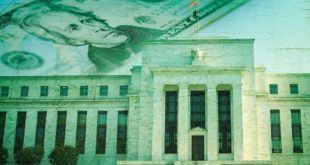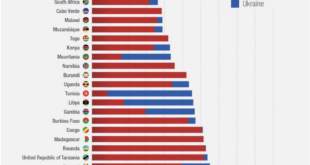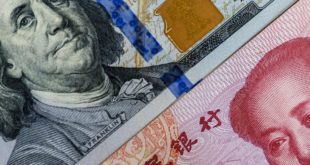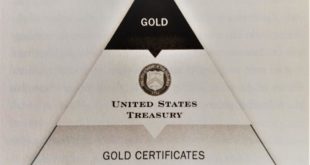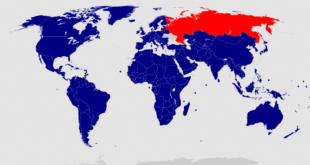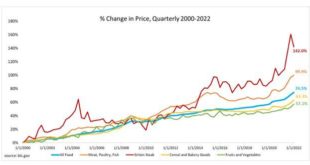Europe is not going to achieve a competitive energy transition with the current interventionist policies. Europe does not depend on Russian gas due to a coincidence, but because of a chain of mistaken policies: banning nuclear in Germany, prohibiting the development of domestic natural gas resources throughout the European Union, added to a massive and expensive renewable rollout without building a reliable backup. Solar and wind do not reduce dependency on Russian...
Read More »Central Banks: Who Needs Them? No One
As the Federal Reserve hikes its lending rate to a range of 0.25–0.50 percent, murmurs are heard around the world, with financial pundits predicting doom due to the increased pressures imposed on the cost structures of firms that are recovering from the pandemic lockdowns. The Federal Reserve is leader of the group of central banks around the world that are ostensibly directed by their respective countries to pursue stability and smooth functioning of their...
Read More »No, More Bureaucracy Would NOT Have Saved Trump’s Paycheck Protection Program
Sorry, I've looked everywhere but I can't find the page you're looking for. If you follow the link from another website, I may have removed or renamed the page some time ago. You may want to try searching for the page: Search Searching for the terms %3Futm+source%3Drss%26utm+medium%3Drss%26utm+campaign%3Dgrassmueck+more+bureaucracy+trump+paycheck+protection+program ...
Read More »Will Biden Sanction Half the World to Isolate Russia?
The United States is no longer in any position to remake the world in its image. It’s not 1945 or even 1970. Yet the US seems to be gearing up to bully half the world into compliance with the US Russia sanctions. Original Article: “Will Biden Sanction Half the World to Isolate Russia?” It is becoming increasingly apparent that isolating Russia and totally cutting it off from the global economy is not going to be easy. As I discussed last week, from Mexico to...
Read More »Why Saudi Arabia Won’t Abandon Dollars for Yuan
There are numerous articles mentioning that Saudi Arabia may use the yuan, China’s domestic currency, for its oil exports. How much does Saudi Arabia export to China? According to the Organisation of Economic Co-operation and Development, the kingdom’s main exports are to China ($45.8B), India ($25.1B), Japan ($24.5B), South Korea ($19.5B), and the United States ($12.2B). Exports of crude oil reached $145 billion in total. Saudi Arabia is the world’s largest oil...
Read More »Central Banks Have Broken the True Savings-Lending Relationship
Most people believe lending is associated with money. But there is more to lending. A lender lends savings to a borrower as opposed to “just money.” Let us explain. Take a farmer, Joe, who has produced two kilograms of potatoes. For his own consumption, he requires one kilogram, and the rest he agrees to lend for one year to another farmer, Bob. The unconsumed kilogram of potatoes that he agrees to lend is his savings. By lending a kilogram of potatoes to Bob, Joe...
Read More »A Review of Nik Bhatia’s Layered Money: From Gold and Dollars to Bitcoin and Central Bank Digital Currencies
For understanding our modern monetary troubles, Nik Bhatia’s pamphlet-sized book from last year hits exactly the right intersection between money and banking, between the past and the future. Clocking in at around 150 pages of easy prose, it’s accessible but not dumbed down, revealing but not inaccurate. It has a simple framework that Bhatia explains and explores with great expertise. As an introduction to what bitcoin is as a monetary technology, Layered Money: From...
Read More »Russia Isn’t Nearly as Isolated as Washington Wants You to Believe
Those gloating about Russia being “cut off” are overstating the case. In fact, many of the world’s largest countries have shown a reluctance to participate in the US’s sanction schemes, and even close US allies aren’t going along with it. Original Article: Some US policymakers and pundits are declaring that Russia—and its population—are cut off from the rest of the world. For example, political scientist Nina Khrushcheva has declared “Russia is hated by the...
Read More »The West’s Russia Sanctions Show Why States Want to Weaponize the Financial System
States continue to seek new ways to make the financial system an “economic chokepoint” enabling the state to crack down on specific organizations, individuals, or activities. Original Article: “The West’s Russia Sanctions Show Why States Want to Weaponize the Financial System” In the past month, Western nations have allied to wage an economic and technological war against the Russian government and key Russian institutions. These measures included economic...
Read More »How Agriculture Bureaucrats Are Manipulating Food Prices—and Our Diets
With inflation at a forty-year high, it is the topic on everyone’s mind. US core inflation has reached 7.5 percent year over year, and the prices of certain goods, such as used cars and steak, are up as much as 50 percent over the past year. This is a major threat to the current administration, with a recent poll showing that 70 percent of Americans disapprove of Joe Biden’s handling of inflation. Inflation is incredibly unpopular with voters, and there is a strong...
Read More » Swiss Economicblogs.org
Swiss Economicblogs.org


